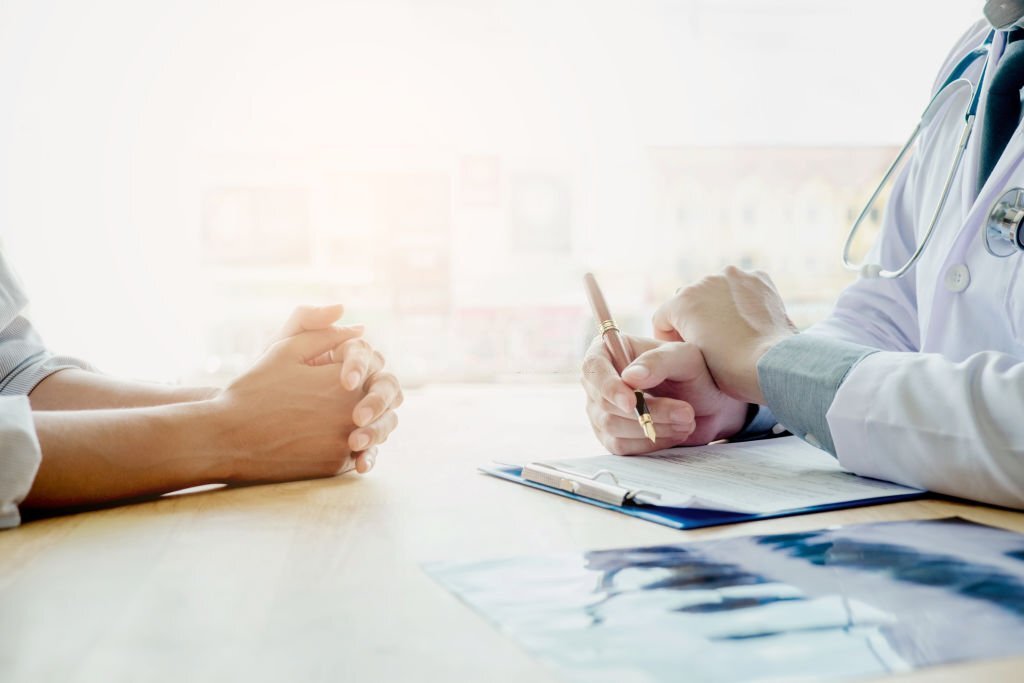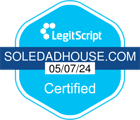Is Gabapentin Addictive? And Other Important Facts
Is gabapentin addictive? Read on to learn more about this drug, its side effects, and what it’s prescribed for.
Table of Contents
Contact Soledad House to Learn More
Our team is standing by to discuss treatment options with you. Your call is completely confidential and no obligation is required.
Call Us 24/7
Contact Soledad House to Learn More
Our team is standing by to discuss treatment options with you. Your call is completely confidential and no obligation is required.
Call Us 24/7What is Gabapentin?
Gabapentin is an anticonvulsant medication that’s used for a wide range of conditions. It can be prescribed to help treat seizure disorders, lingering nerve pain after shingles, and other kinds of pain, especially chronic nerve pain. 1
Contact Soledad House to Learn More
Our team is standing by to discuss treatment options with you. Your call is completely confidential and no obligation is required.
Call Us 24/7Is Gabapentin a Federally Controlled Substance?
Gabapentin isn’t currently a federally controlled substance, but some states are starting to control gabapentin more closely as reports of people abusing the drug are becoming more common. However, even in these states, gabapentin is still only a Schedule V drug, which is the lowest level of control for a prescription medication.
This means that if you live in one of those states, it might be harder to get a gabapentin prescription, and you might need to see your doctor more often to get prescription refills. However, for the people who need this medication, it should still be highly accessible.
Is Gabapentin Addictive?
Why is Gabapentin Potentially Addictive?
The reason gabapentin might have a risk of addiction is that the usual feelings of calmness or relaxation it elicits can become stronger and turn into feelings of euphoria, especially at high doses or when you take more than you need to. People who take gabapentin without a therapeutic need may also be more likely to experience that euphoric sensation because the drug isn’t being used to control pain or seizures, allowing the drug to more easily change your mood.
People may also become addicted to gabapentin as a form of self-medication for mental health disorders, particularly anxiety and depression, where the relaxed calm produced by the medication may ease their symptoms even if they don’t get high.
How Addictive Is Gabapentin?
Gabapentin misuse is a growing problem, but the addictive potential is still lower than some other medications. The people most likely to become addicted tend to be people who have had other substance use disorders or who have mental health disorders. 4
It’s hard to answer just how addictive gabapentin can be. The risk of misuse is relatively low. However, because gabapentin isn’t a highly controlled substance and people may not always realize they are misusing their prescription, the addictive potential of gabapentin may be underestimated and underreported.
Side Effects of Gabapentin Addiction
- Fatigue
- Muscle weakness
- Dizziness
- Headache
- Tremors or shaking
- Anxiety
- Unsteadiness on your feet
- Strange thoughts
- Unwanted eye movements
- Dry mouth
- Constipation or diarrhea
- Nausea or vomiting
- Heartburn
- Weight gain
- Fever runny nose
- Swollen joints, especially ankles
Serious Side Effects Of Gabapentin
In addition to the common side effects of gabapentin, there are also serious side effects that warrant more concern and may require immediate medical attention. Always reach out to your doctor as soon as possible if you have any of these side effects and seek medical attention if the side effects become more severe or don’t go away quickly.
Serious side effects may include:
- Unexplained rash or itchy skin
- Swelling of the face, nose, throat, or lips
- Hoarseness
- Difficulty breathing or swallowing
- Extreme sleepiness
- Seizures
- Bluish color of nose, lips, finger, or toenails
Gabapentin Warnings
While there are many gabapentin uses that are worth the minor risks of the medication, it still comes with a few important warnings you should understand before you take the medication.
For one thing, gabapentin may cause serious and potentially life-threatening breathing problems, especially if you already have a known breathing disorder. Also, you should never stop using gabapentin suddenly, even if you feel fine without the medication.
Gabapentin can also have serious interactions with opioid medications, and they should not be used together. Lastly, some gabapentin users have developed suicidal thoughts or thoughts of self-harm. People who already have mental health disorders or who already live with suicidal ideation or self-harm may be at greater risk of developing those complications.
Gabapentin Overdose and Addiction
It is possible to overdose on gabapentin, leading to dangerous side effects. If you suspect you might have overdosed on this medication, you should seek medical attention from an emergency care provider. Gabapentin overdose symptoms include:
- Difficulty speaking
- Blurred vision
- Double vision
- Drowsiness
- Diarrhea
Remember, it is possible to overdose even if you only took your normal dose. The symptoms of gabapentin overdose should never be ignored.
Gabapentin Addiction Symptoms
Gabapentin addiction can be hard to spot because some of the signs and symptoms of addiction, including things like increased pain and anxiety, can also be symptoms of the very disorders that gabapentin is meant to treat. However, there are a few behavioral signs that can help you spot gabapentin addiction in yourself and others. Those symptoms include:- Needing to take more gabapentin to get relief, even if your prescription hasn’t been increased
- Feeling agitated between doses
- Noticing more significant side effects but being unwilling to stop taking the drug
- Taking gabapentin when your symptoms don’t warrant it
- Looking for other ways to get more gabapentin
- You feel like you can’t be yourself without gabapentin
- You feel like you can’t perform or live up to expectations without gabapentin, or feel you need to take more than you need to control symptoms
Gabapentin Withdrawal and Detox
Gabapentin withdrawal should be managed carefully by a medical care provider. It’s never a good idea to stop taking gabapentin suddenly, even in cases where addiction is suspected. There are also some significant withdrawal symptoms associated with weaning off of the drug, including:- Increased anxiety
- Seizures (mostly for people with seizure disorders)
- Insomnia
- Pain
- Excess sweating
Treatment for Gabapentin and Other Prescription Drug Addiction
There are options available if you think you’ve become addicted to gabapentin or other prescription drugs. The first step is to undergo detox, where you slowly reduce the amount of how much gabapentin you’re taking until you stop entirely. This will help your body adjust to functioning without gabapentin.

Residential Treatment
Residential rehab programs are a good option for people who need more support during withdrawal, detox, or recovery, especially those with underlying health problems or a previous history of substance use disorders.
Going to a residential rehab program gives you a lot more support and helps build healthy coping mechanisms and identify any underlying causes of your addiction to keep you safer on medications in the future.
Soledad House Treatment Opportunities
At Soledad House, we’re happy to help you overcome gabapentin addiction, make sure you’re safe and medically cared for throughout treatment, and help you avoid addiction in the future. Soledad House offers a woman-centered treatment approach that will enable you or your loved one to achieve and maintain long-term wellness and sobriety.
Contact us to learn more about our programs for people struggling with gabapentin substance use disorder




